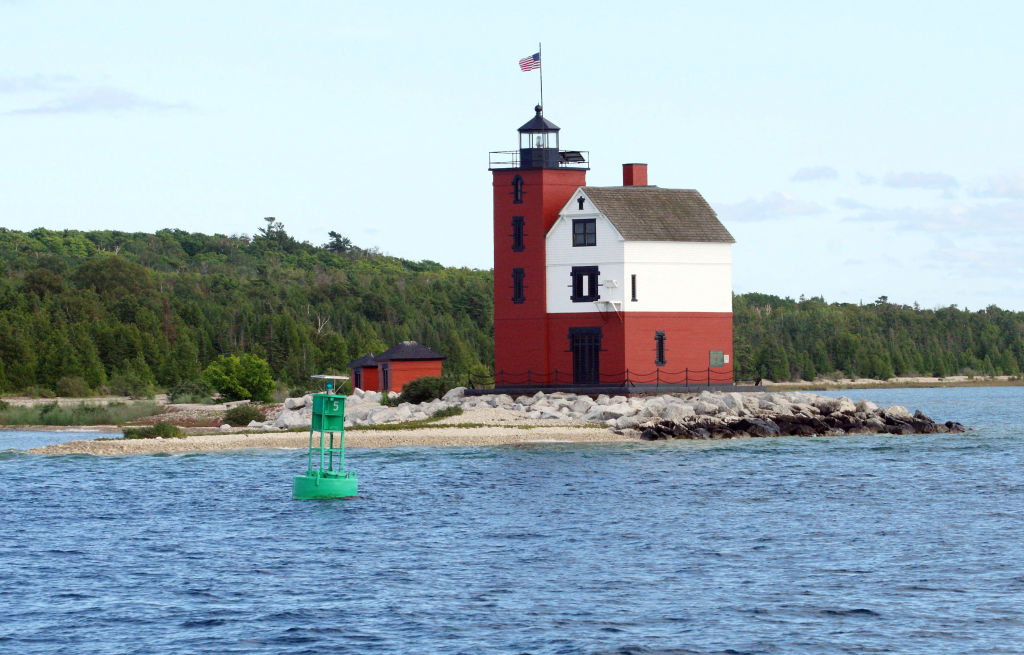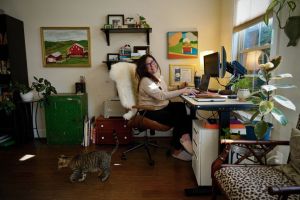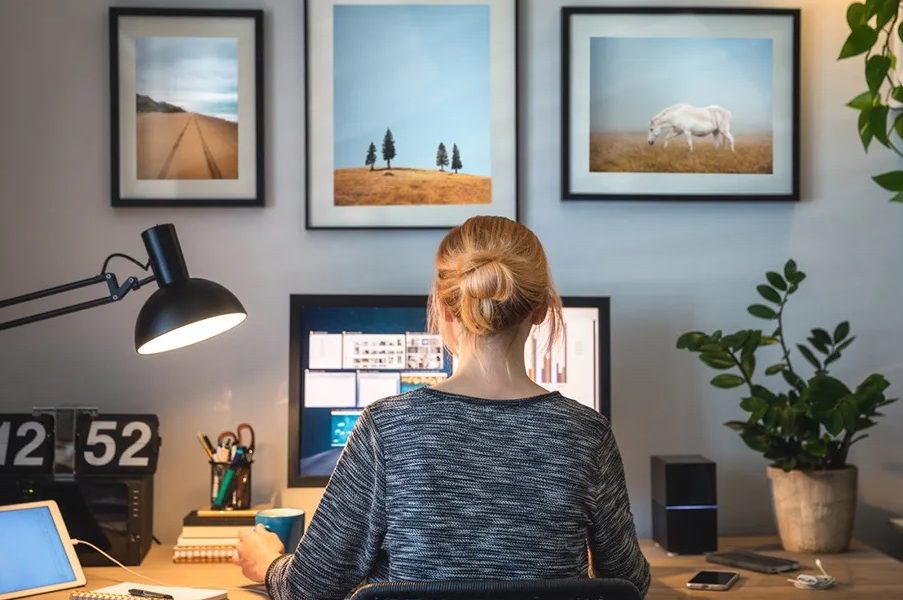When I asked Malinda and Keith Martin when a good time for an interview would be, Malinda wrote back, “We are having drinks on the back deck, so now would be fine.” I was having drinks on my front porch, and I knew already the conversation would be more than fine.
The Martins are from Huntsville, Alabama, and started down the Tennessee River in their 1987 forty-three-foot Hatteras motor yacht — the Sea Cottage — last December on their quest to become “Loopers.” In late May, when we spoke, they were anchored in North Carolina.
A person earns the title of “Looper” when he completes the Great Loop, which America’s Great Loop Cruisers’ Association (AGLCA) explains is “a circumnavigation of the eastern US and part of Canada. The route includes the Atlantic Intracoastal Waterway, the New York State canals, the Canadian canals, the Great Lakes, the inland rivers and the Gulf of Mexico.”
First things first: what is a Looper’s drink of choice?
“Well, that’s a wide variety of things,” muses Malinda in a charming southern drawl. “It could be beer, French 75, a margarita…”
“Bourbon cocktail!” chimes in Keith.
“Oh yeah, brown water!” rejoins Malinda with a laugh. “The nice thing about ‘docktails’ when you have other people come, everybody brings their own drinks.”
The Martins are both in their sixties and agreed that after they both retired, they wanted to conquer the Great Loop. When Keith was diagnosed with cancer last summer, “We told the doctor, ‘We are doing this trip come hell or high water this December 1; we don’t have time to be sick,’” Malinda recalls. “They worked with us, and Keith had surgery. He’s cancer free, and come December 1, we took off!”
Every day on the boat is “an uncomfortable pleasure,” the couple says, with “a new challenge mentally, physically, whatever, that you have to overcome. And it’s really great.”
According to Keith, the trip is “the perfect pay-it-forward lifestyle. Everybody wants to see everybody else succeed and everybody grabs the ropes and helps. We say [the other Loopers] are friends you just haven’t met yet.”
No two days of the Loop are the same. Says Malinda, “We travel some days and other days either anchor out and go fishing, paddleboarding, snorkeling, diving, swimming, beachcombing, crabbing, watch the wildlife, read, paint or draw and visit with other boaters. If we go to a marina, there is provisioning, tinkering with boat issues, visiting the towns, eating out, and of course docktails. The people are the best part.”
Keith describes the Looping lifestyle as “rekindling Mayberry attitudes,” and, he says, “especially with the political agendas that are going on today, it’s such a breath of fresh air.”
Political topics rarely come up, Keith adds, because “there’s so much other stuff to talk about that it doesn’t drive the conversation out here. And people smile so much more — and laugh!”
Kimberly Russo is AGLCA’s director and echoes the Martins’ experience. Looping, she says, “restores your faith in humanity.” The trip is “the great equalizer,” because “nobody really cares if you’re on a fifty-foot, brand-new boat or on a small sailboat from the Eighties. They care about where you’re going next or where you’ve been.”
Plus, “it’s a lot easier to unplug” when you’re out on the water, Russo says. You’re busy, generally not spending a lot of time in front of a computer or phone screen. For another, you’re absorbed in your new destination. “Arriving by boat, it’s just a completely different outlook than when you arrive by car or plane,” Russo says.
To prepare would-be Loopers for their journeys, AGLCA puts on semi-annual “Rendezvous” with seminars on how to plan and prepare, what to know about weather, anchoring, etc. There’s also a lot of social time at these events, too, which is something Billy Kahn, of Phoenix, Arizona, is looking forward to when he departs on the Great Loop with his wife a year from now. He notes how “water has a calming influence on people,” and it’s “that kind of energy, that community, rather than some of the news stuff we see every day” that he’s excited to experience.
Methinks it would do us all good to take part in the Great Loop lifestyle, or at least adopt the mindset. And it’s getting easier to do so. About 200 people (up from an average of 150) are becoming Loopers each year. Russo says Starlink internet has been “a gamechanger” for remote workers, and navigation technology has made Looping much easier. While the Great Loop is still largely composed of retirees, there are now more homeschooling families and younger couples on the waterways.
Russo says social media has also helped people realize Looping “can be done on a reasonable budget… Loopers are not all rich people on fifty-foot boats that cost a million dollars. Other than the boat and fuel cost, most of your other expenses are not that different from home.”
Keith sums up the Great Loop with the George Strait hit that declares “There’s a difference in living and living well.” The Martins assure me they’re living well, and I can hear it in their voices.
In the same song, Strait also sings, “Something’s always missing ‘til you share it with someone else.” The Martins say the Great Loop has strengthened their marriage, and as for Kahn’s observation about water’s soothing qualities, the Martins know a man who called up the ex-wife he’d been divorced from for fifteen years, convinced her to Loop with him and three years later, they bought a house together in the Bahamas.
This article was originally published in The Spectator’s July 2024 World edition.


























Leave a Reply